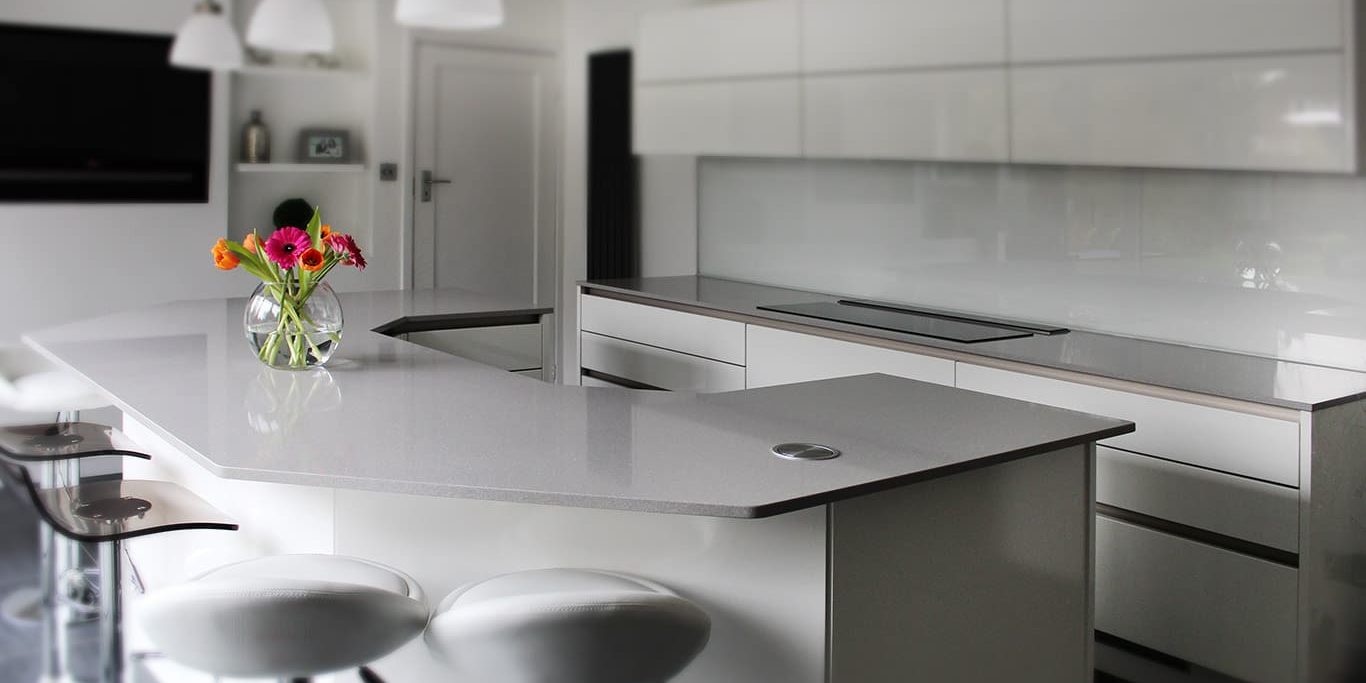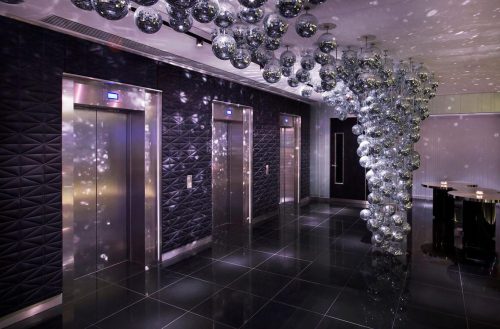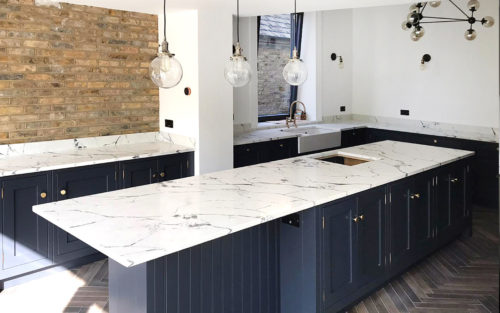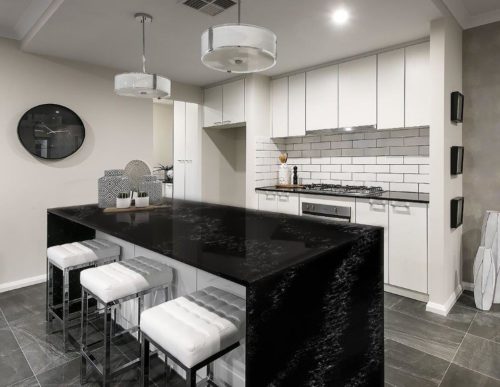When you are renovating your kitchen, one of the most important items to consider is your worktops. Not only do they serve a very practical purpose, but they also take up a fair amount of space, and as such catch the eye.
The issue that most people have when thinking about changing their worktops is simply that there are so many different choices that it can be hard to decide what is the best solution. Of course, the various alternatives come in at a variety of different price ranges and you obviously have to take your budget into account.
Probably one of the cheapest answers is laminate. Laminate worktops are available in a range of colours, and the quality today is better than it used to be. However, when you need more than one sheet of laminate, which applies to most kitchens, the lines and joints can be prominent. Furthermore, laminate is prone to chips and scratches, so it will not last as long as some other materials.
Some people like the look of natural wood, and there is a lot to be said for the warmth that it exudes. If you are going for wood, it needs to be hardwood such as oak, walnut, or iroko. It will require an initial programme of sealing in order to prevent water penetration and staining. Thereafter, you need to apply linseed oil once every three months. You must not put hot pans down on it because it will scorch, and equally you must not chop or cut foods on it.
Another choice is stainless steel. This has the advantage that it is totally hygienic and is heat and stain resistant, which is ideal in a kitchen. It is also very long lasting. Stainless steel is used widely in the catering industry for these reasons. However, it is very clinical-looking and not what a lot of people would want in a home kitchen.
Another choice for worktops is concrete. It is available in a range of standard concrete mix colours from white to grey but can also have other pigments mixed with it for stronger colours. However, it is porous and can stain easily so it has to be sealed, and it is also prone to scratching. In addition, it is very heavy, so the cabinets may need to be reinforced.
Solid surface worktops such as Corian are made from a blend of minerals, acrylic resins, and pigments and have a nice shine. They are warm to the touch as well. They can also be totally seamless, being moulded into any shape required including splashbacks. They are stain and water resistant and also heat resistant, although you should still use a trivet. However, they can suffer from scratches.
Of course, you can also have stone worktops in London and here you have a choice of natural stones such as marble, granite, and limestone, and also man-made or engineered stones like quartz and sintered stone.
Quartz worktops are a very popular choice because quartz is totally non-porous and doesn’t need sealing. Quartz is made from powdered quartz aggregates, it being one of the hardest rocks on the planet, and consists of about 93% quartz, while the balance is composed of acrylic resins and pigments. Not only is it very hard-wearing, but quartz is totally hygienic as it cannot harbour any bacteria or moulds.
Sintered stone is another man-made product and is composed of carefully chosen minerals and stones which are bonded together under extreme heat and pressure. Like quartz, the resultant product is totally non-porous and highly resistant to staining and chipping. It is also weatherproof and can be used outside for things such as a patio deck, and can be made to resemble tile, natural stones, wood, and other smooth or textured surfaces.
Then of course there is marble which is a fairly soft stone but has a glorious sheen which appeals to many people. It is porous, so needs sealing, but it is also very dense which keeps it cool and makes it the favourite of pastry chefs for rolling out pastry. A lot of marble is in shades of white, but it is also available in browns and greens with some heavy veining.
At Marble & Granite, we also manufacture granite worktops, as you might guess, and these are also very popular as they are harder than marble and come in a wide choice of different colours. Many granites also have unique grains and veining in them. Granite is porous and therefore, does need sealing, but it is a very tough material for a kitchen worktop.




